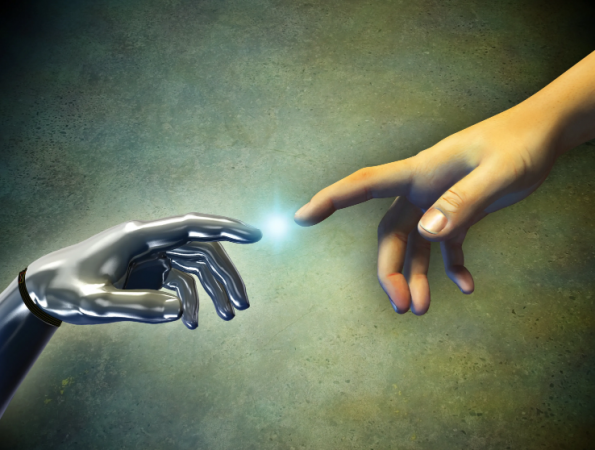
New Delhi: The advent of artificial intelligence (AI) has ushered in a new era of technological progress, raising questions about the capabilities of human intelligence in comparison.
While human intelligence has been the driving force behind centuries of innovation and problem-solving, AI has demonstrated remarkable abilities in processing vast amounts of data and performing complex tasks.
In this article, we will explore the strengths and limitations of both human and artificial intelligence, and delve into the potential of harnessing the power of both to tackle the challenges of the future.
Also Read: Benelli Imperiale 400 vs KTM 390 Duke: A Comparative Analysis
Human intelligence is a remarkable and multifaceted phenomenon that has fueled progress and innovation throughout history. Our ability to think critically, reason, and apply creativity sets us apart from machines.
Human intelligence encompasses emotional intelligence, social skills, empathy, and intuition, which play a crucial role in complex decision-making, leadership, and understanding the nuances of human interaction.
Human intelligence is capable of adapting to new situations, drawing from past experiences, and finding innovative solutions to complex problems.
Our ability to think abstractly, perceive patterns, and engage in creative thinking enables us to push the boundaries of knowledge and innovation. Additionally, our capacity for empathy allows us to connect with others, understand their needs, and collaborate effectively.
Also Read: Bullet 350 vs Bullet 350ES: A Comparative Analysis
Artificial intelligence, on the other hand, has made significant strides in recent years, driven by advancements in computing power and machine learning algorithms.
AI systems can process and analyze vast amounts of data with incredible speed, uncovering patterns and correlations that may elude human observers. Machine learning techniques enable AI to continuously improve and adapt its performance based on data inputs.
AI has demonstrated remarkable proficiency in tasks such as image and speech recognition, natural language processing, and even strategic decision-making.
Autonomous vehicles, virtual assistants, and medical diagnostic systems are just a few examples of AI applications that have enhanced efficiency and accuracy in various domains.
Rather than viewing human and artificial intelligence as adversaries, there is a growing recognition of the potential synergy between the two. Combining the strengths of both human and artificial intelligence can lead to even greater advancements and address complex challenges more effectively.
Human intelligence can provide the ethical framework and moral reasoning necessary for responsible AI development and deployment. It can guide AI systems in making decisions that align with societal values, ensuring that technology serves human interests rather than overshadowing them.
Conversely, AI can augment human intelligence by providing powerful tools for data analysis, processing, and automation. By leveraging AI's capabilities, humans can enhance their problem-solving abilities, make more informed decisions, and tackle complex issues more efficiently.
Moreover, the collaboration between human and artificial intelligence can lead to breakthroughs in scientific research, healthcare, climate change mitigation, and many other fields.
Also Read: India's Growth in the Past 10 Years
AI can assist researchers in analyzing vast amounts of data, identifying patterns, and accelerating the discovery process. In healthcare, AI can support doctors in diagnosis, treatment planning, and personalized medicine, ultimately improving patient outcomes.
Human intelligence and artificial intelligence are two complementary forces that, when combined, hold immense potential for solving the challenges of our time. While human intelligence brings creativity, empathy, and adaptability to the table, artificial intelligence offers speed, data processing capabilities, and automation.
By embracing collaboration between human and artificial intelligence, we can harness the strengths of both to shape a future that is not defined by competition but by the collective intelligence that arises from their synergy. This collaborative approach will empower us to create a world where technology serves humanity and enables us to address complex problems with greater precision and efficiency.